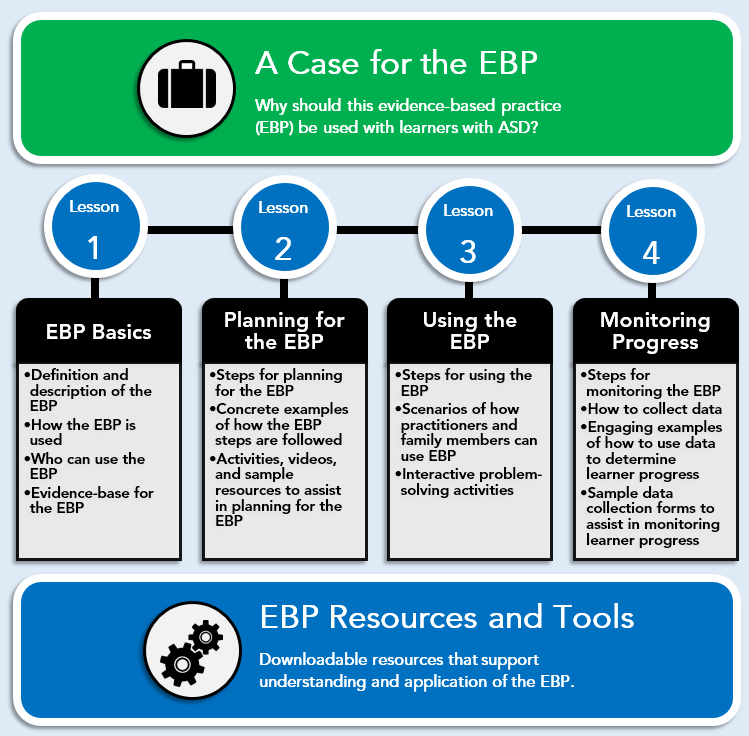
Peer-mediated Instruction and Intervention (PMII)
With a foundation in behaviorism and social learning theory,1 PMII involves systematically teaching peers without disabilities ways of engaging learners with ASD in positive and meaningful social interactions.2-4
What Will I Learn?
The AFIRM model guides the learner through four lessons to facilitate:
- Learning basic knowledge about peer-mediated instruction and intervention (PMII).
- Applying PMII in activity based scenarios that promote real-world application.
The PMII module will take approximately 1.5 to 2 hours to complete. However, the module is broken into individual lessons to help guide your learning:
| Lesson | Time to Complete |
|---|---|
| A Case for PMII | 10 minutes |
| Lesson 1: Basics of PMII | 20 minutes |
| Lesson 2: Planning for PMII | 25 minutes |
| Lesson 3: Using PMII | 25 minutes |
| Lesson 4: Monitoring PMII | 25 minutes |
| Applying PMII | 10 minutes |
Suggested citation:
Sam, A., & AFIRM Team. (2015). Peer-mediated instruction and intervention. Chapel Hill, NC: National Professional Development Center on Autism Spectrum Disorder, FPG Child Development Center, University of North Carolina. Retrieved from http://afirm.fpg.unc.edu/peer-mediated-instruction-and-intervention
Sam, A., & AFIRM Team. (2015). Peer-mediated instruction and intervention. Chapel Hill, NC: National Professional Development Center on Autism Spectrum Disorder, FPG Child Development Center, University of North Carolina. Retrieved from http://afirm.fpg.unc.edu/peer-mediated-instruction-and-intervention
Professional Standards
Council for Exceptional Children (CEC) Standards that apply to all 27 evidence-based practices (PDF document, 2 pages)
CEC standards that apply specifically to the peer-mediated instruction and intervention (PMII) module (PDF document, 2 pages)

 Click to view AFIRM model
Click to view AFIRM model